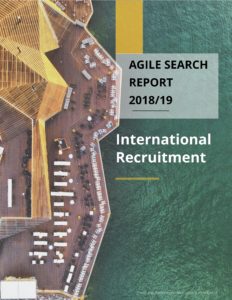Carolina is our Argentinean sunshine! She is a multifaceted professional with 9+ years of experience in research, communication, and HR. Currently, she is working as a Talent Acquisition Consultant at our client company, Telenor.
During the past 10 months, she was responsible for 2 international recruitment projects, the on-site project in Portugal and off-site project in Argentina. I talked to her during our FIKA time regarding her practice in the projects and found it really share-worthy. From my point of view, today we are facing a global shortage of great talent. For an employer, it’s time to think about how to exploit the international candidate market and create a diverse culture and equal atmosphere for everyone.

How did you plan and execute these 2 international recruitment projects?
-On-site recruitment project in Portugal
The project in Portugal was more based on open requests. We had a team who went to Portugal for an international conference in November. Three months ahead, we started searching for people with different kinds of profiles based on the requirements from our clients.
In this project, we contacted quite a lot of candidates over 3 months and had 40+ candidates who were interested in the initial stage. In the end, 12 candidates were presented to our clients and one of them was hired.
-Off-site recruitment project in Argentina
We started the second international recruitment project for one client in December. We searched and selected around a hundred qualified javaScript developers in Argentina. Because of my background, I know there is quite a large IT professional talent pool there and also, among developers, there is a willingness to move abroad too.
I would say the situation was quite different from the talent market in Europa. The candidates in Argentina are mostly friendly, responsive and open to job opportunities in Nordic countries. They do not seem to be as bombarded with job opportunities as the local developers.
In the last stage, I ended up having nearly 20 interviews and presented 13 of them to the client. In the final steps, 6 candidates were in the process and 3 developers were hired.
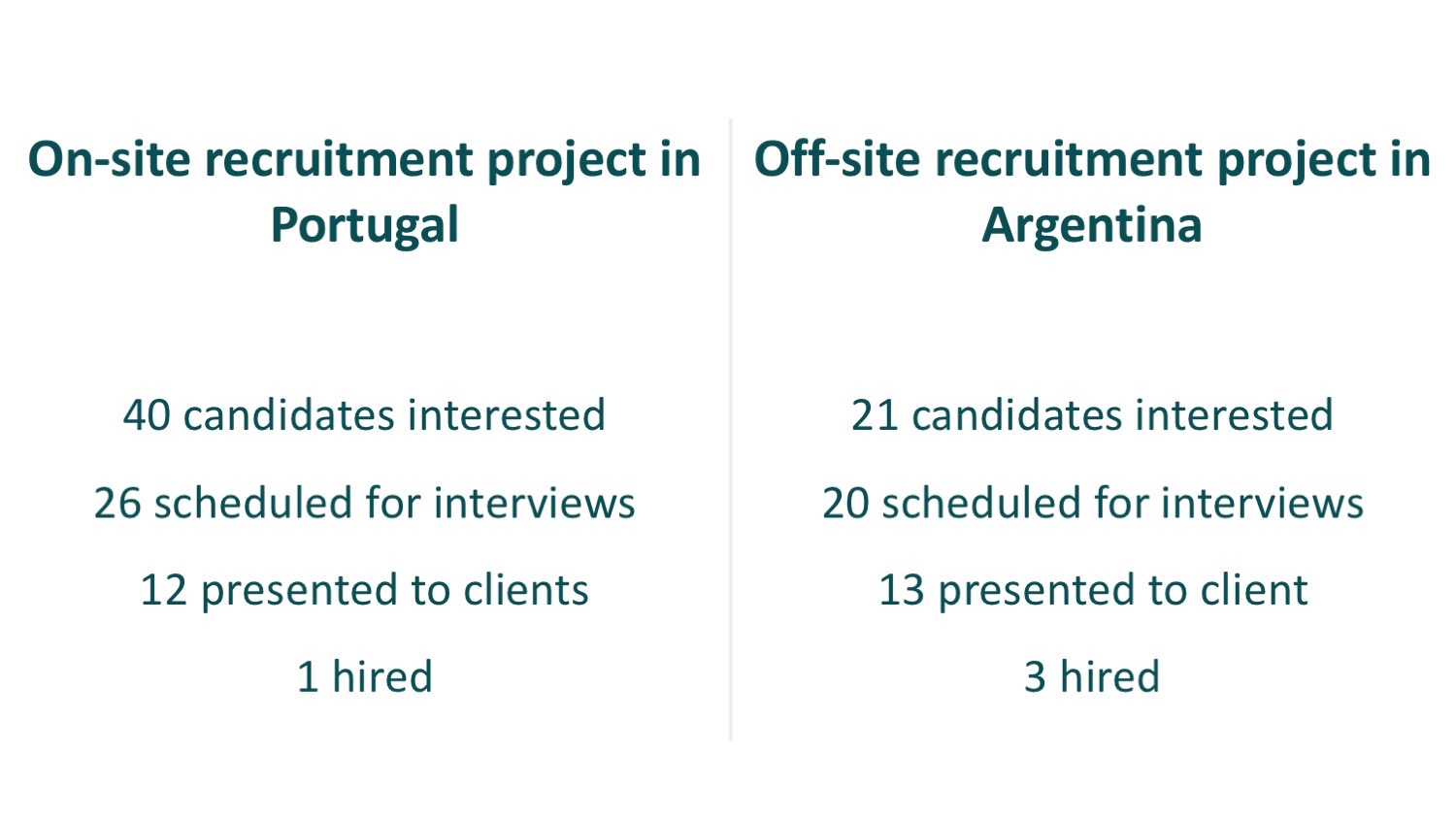
What do you find challenging about the projects and what do you think was the reason for the success?
Firstly, I think there is some misunderstanding that companies think it is difficult to hire from abroad because it can be time-consuming, expensive or full of uncertainty. Companies usually take international recruitment as the last option after the position has been open for over 6-8 months. However, I would say if you have an efficient and transparent recruitment process, it will not take as much time, or be as expensive as a long local process when you are not able to find the right candidate.
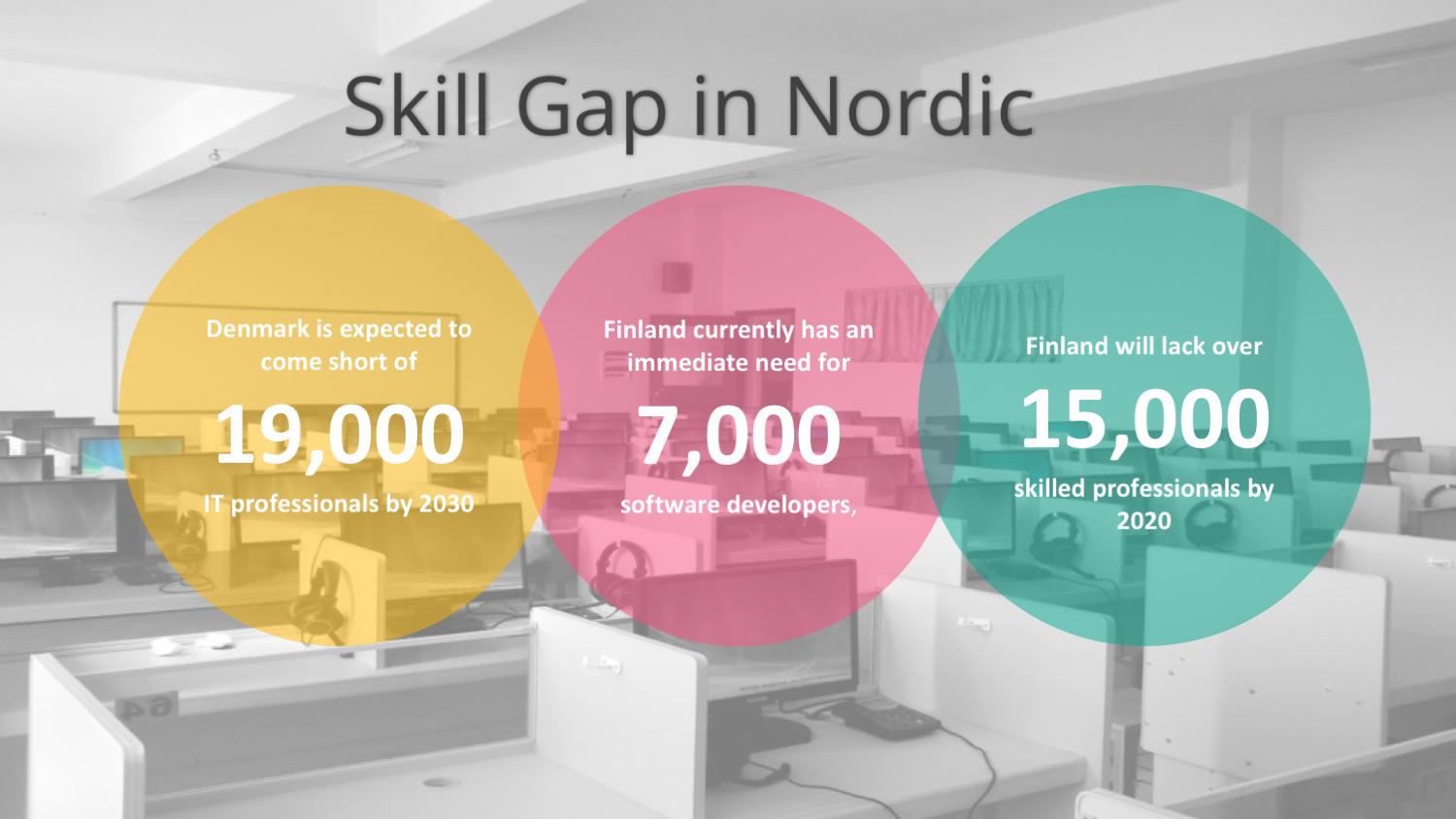
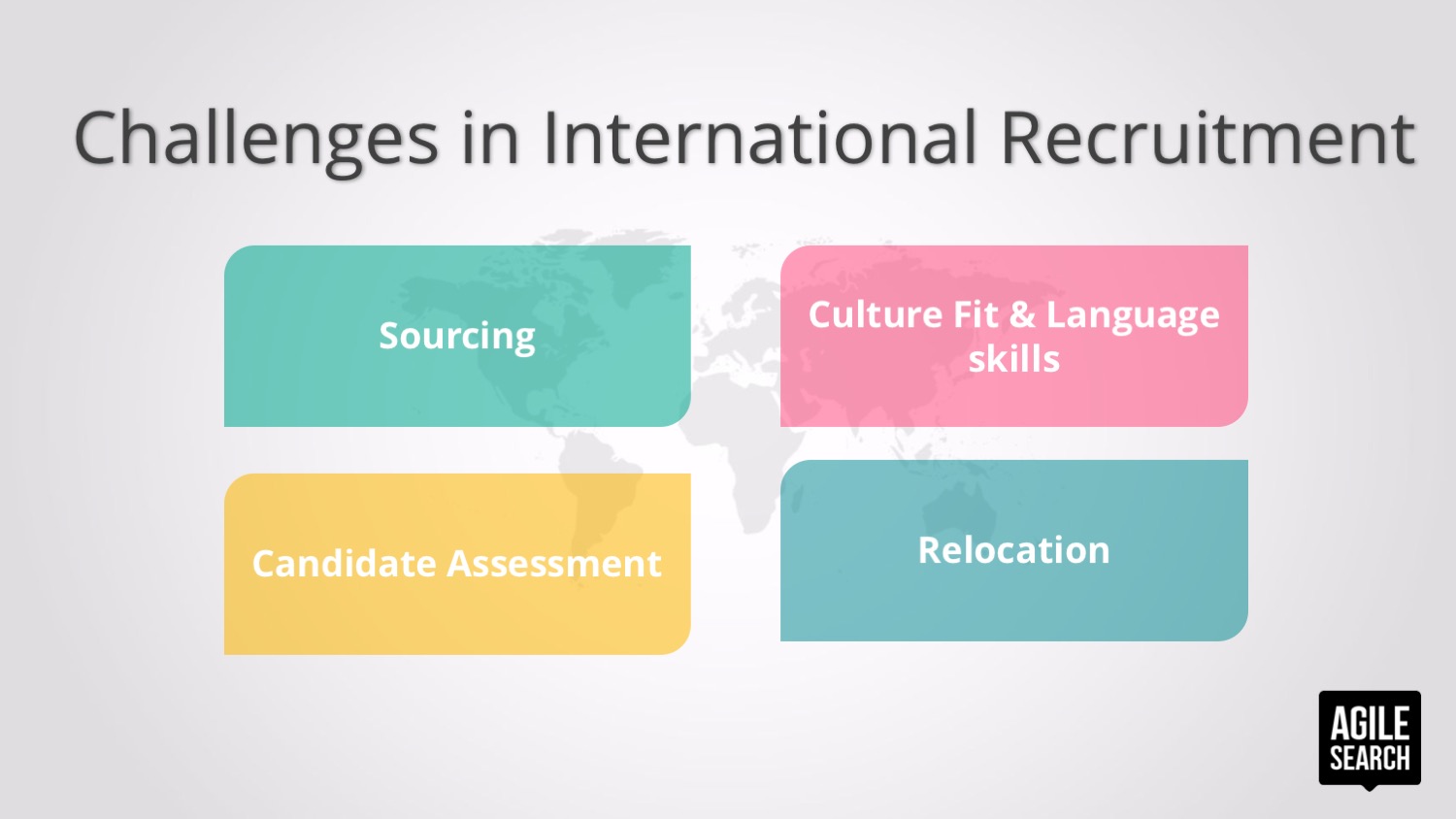
When working on these projects, we always help our clients to set up the goal and process first, which includes not only the target group and basic criteria but also the assessment and interviews. We would suggest a 3-step process within 15-20 days and a clear timeline for the relocation.
In these projects, communication was also the key to success. Before making the decisions, international candidates may have a lot of questions regarding work, tax, housing, health, and education system, etc. That is why you need to provide candidates with proper information and set up a relocation package to manage their expectations as well.
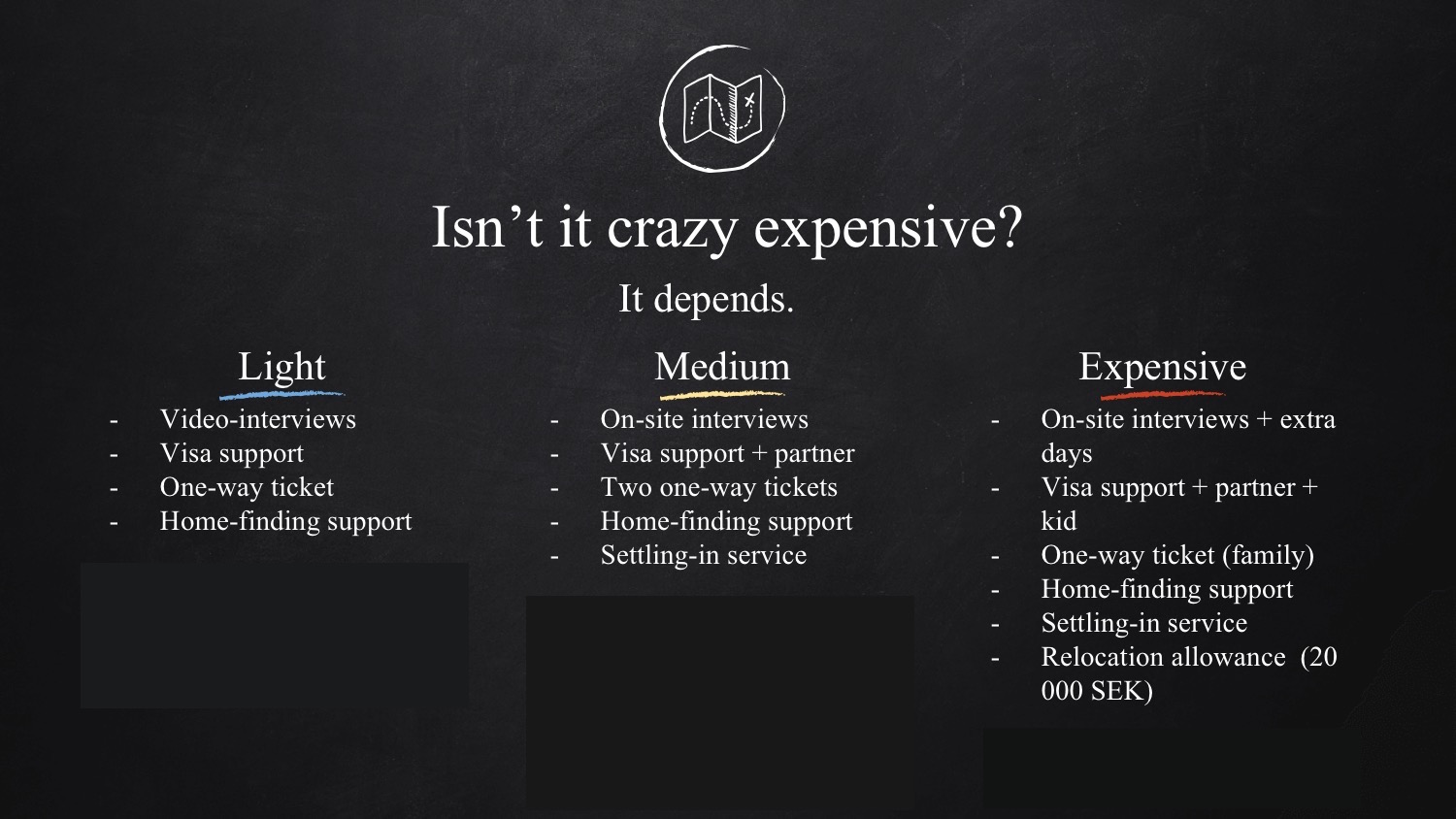
We know that globalization sounds really cliche. We know that it is not easy to get out of our comfort zone. But nothing to fear! The talent is out there beyond the Baltic Sea and now it’s your next growth opportunity. If you don’t have the resources to do it you can also have a professional partner to help streamline the process.
Find more information and practicalities in our annual report, International Recruitment – Agile Search Report 2018/19
If you are an HR-professional, a CEO, a company founder or a recruitment professional, you can also follow our HR Meetup group.
